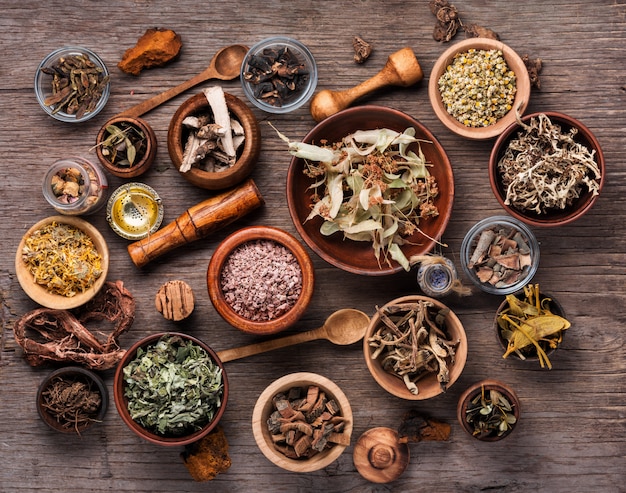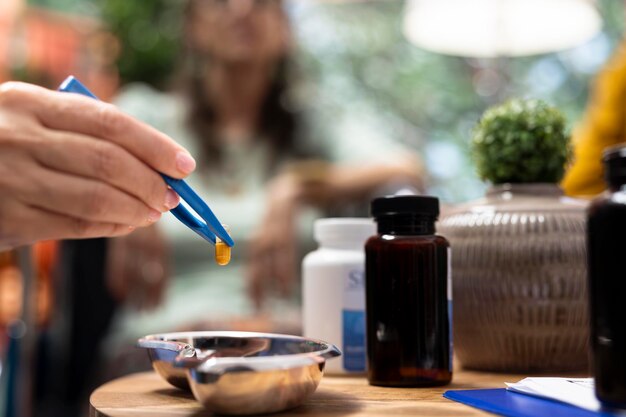Ask Ayurvedic doctor a question and get a consultation online on the problem of your concern in a free or paid mode. More than 2,000 experienced doctors work and wait for your questions on our site and help users to solve their health problems every day.
Best Ayurvedic Medicines for Palpitations and Anxiety – Natural Relief

Ayurveda offers a holistic approach to managing palpitation (heart palpitations) and anxiety by addressing underlying imbalances in the body and mind. While treatment should be personalized by a qualified practitioner, several well-regarded Ayurvedic herbs and remedies may help calm the nervous system, strengthen the heart, and reduce anxiety-induced palpitations.
Don't wait or self medicate. Start chat with Doctor NOW
Key Ayurvedic Remedies for Palpitation and Anxiety
Ashwagandha (Withania somnifera)
Ashwagandha is a renowned adaptogen used to reduce stress and anxiety. It helps stabilize the body's response to stress, supports adrenal function, and can indirectly benefit heart rhythm by calming the nervous system. Its adaptogenic properties may help ease palpitation triggered by anxiety.
Brahmi (Bacopa monnieri)
Brahmi is traditionally used to enhance mental clarity and calm the mind. By reducing mental stress and anxiety, Brahmi can help lower the frequency of palpitations associated with nervous tension.
Jatamansi (Nardostachys jatamansi)
Jatamansi is known for its calming and sedative effects. It supports a balanced nervous system, helping to reduce anxiety, improve sleep quality, and soothe irregular heartbeats linked to nervous excitement.
Shankhapushpi (Convolvulus pluricaulis)
Shankhapushpi is used to calm the mind and alleviate anxiety. It helps reduce mental stress and supports overall mental health, which can decrease the incidence of palpitations.
Lifestyle and Dietary Recommendations
Along with herbal support, Ayurveda emphasizes lifestyle modifications:
- Diet: Consume a balanced diet rich in whole grains, fresh vegetables, and fruits. Avoid stimulants like caffeine that can trigger palpitations.
- Yoga & Meditation: Practices like pranayama (breathing exercises), meditation, and gentle yoga can reduce stress, calm the mind, and support heart health.
- Routine: Establish a regular daily routine, ensuring adequate sleep and relaxation to balance the nervous system and reduce anxiety.
How These Remedies Work
These herbs work by modulating the body's stress response, calming the nervous system, and supporting cardiovascular health. For example:
- Ashwagandha helps reduce cortisol levels, alleviating stress-induced symptoms.
- Brahmi and Jatamansi have neuroprotective and anxiolytic (anxiety-reducing) effects, which can stabilize heart rate and rhythm.
- Shankhapushpi supports cognitive function and emotional balance, further reducing anxiety-related triggers of palpitation.
Consultation and Dosage
It is crucial to consult with a qualified Ayurvedic practitioner for an accurate diagnosis and personalized treatment plan. Dosages and combinations of herbs are tailored based on individual constitution (Prakriti), the severity of symptoms, and overall health. The practitioner may recommend specific formulations, teas, or tinctures, alongside lifestyle advice.
Potential Side Effects & Precautions
- Most Ayurvedic herbs are considered safe when used appropriately, but some individuals may experience gastrointestinal upset or allergic reactions.
- Always perform a patch test (for topical applications) or start with a lower dose when ingesting new herbs.
- Pregnant or nursing women, individuals with chronic health conditions, or those on medication should seek professional guidance before starting any new herbal regimen.
Frequently Asked Questions (FAQ)
How can Ayurvedic medicine help with heart palpitations?
Ayurvedic medicine addresses the root causes of palpitations by reducing anxiety, calming the nervous system, and supporting heart health with adaptogenic and soothing herbs like Ashwagandha, Brahmi, and Jatamansi.
Which herb is most effective for anxiety-induced palpitations?
While effectiveness can vary, Ashwagandha is commonly recommended for its strong adaptogenic and calming effects on both the mind and heart, making it a popular choice for stress-related palpitations.
Can these herbs be taken together?
Yes, Ayurvedic practitioners often prescribe combinations of these herbs in formulations tailored to the individual’s needs. However, it’s important to follow a practitioner’s guidance to ensure proper dosage and avoid interactions.
How long does it take to see results?
Results vary by individual. Some people may notice improvements within a few weeks of consistent use, while for others, it may take longer. Patience and regular practice of lifestyle recommendations are key.
Are there any side effects of using these herbs?
Generally, when used correctly, these herbs are safe. Some may experience mild digestive discomfort or allergic reactions. Always consult a practitioner and monitor your body’s response.
Can Ayurvedic treatments be used with conventional medicine?
Yes, many people integrate Ayurvedic remedies with conventional treatments. However, it’s important to inform your healthcare providers about all supplements and herbs you’re taking to avoid potential interactions.
Where can I find authentic Ayurvedic medicines?
Authentic Ayurvedic medicines can be obtained from reputable Ayurvedic pharmacies, certified practitioners, or trusted online stores. Look for products that list clear ingredient sources and are prepared according to traditional methods.
References & Further Reading
- Lad, V. (2002). Ayurveda: The Science of Self-Healing. Lotus Press.
- Sharma, P.V. (1995). Ayurvedic Healing: A Comprehensive Guide. Lotus Press.
- Mukerjee, P.K., et al. (2010). "Adaptogenic and Anxiolytic Effects of Ashwagandha (Withania somnifera) in Experimental Models." Journal of Ethnopharmacology, 132(2), 185-188.
- National Center for Complementary and Integrative Health. (2021). "Bacopa Monnieri."



